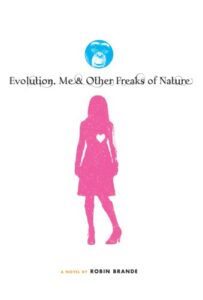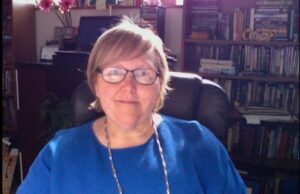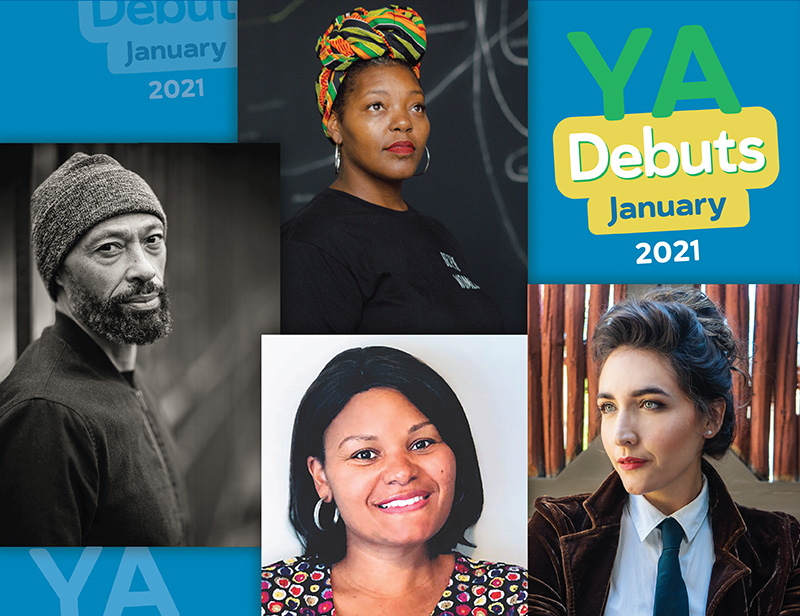The Spiritual Lives of Teens in YA Lit: A discussion of faith and science in Evolution, Me & Other Freaks of Nature by Robin Brande (guest post by Ramona Lowe)
 When Ally Watkins and I put up our announcement that we were going to host a series discussing the spiritual lives of teens in YA lit, Ramona Lowe sent me a beautiful, long email saying “I hope you discuss Evolution, Me & Other Freaks of Nature by Robin Brande because . . . ” And I replied, “I think everything you have said here is wonderful and can be made into a post.” So she turned it in to a post sharing with you today why she is a huge fan of Evolution, Me & Other Freaks of Nature. . . .
When Ally Watkins and I put up our announcement that we were going to host a series discussing the spiritual lives of teens in YA lit, Ramona Lowe sent me a beautiful, long email saying “I hope you discuss Evolution, Me & Other Freaks of Nature by Robin Brande because . . . ” And I replied, “I think everything you have said here is wonderful and can be made into a post.” So she turned it in to a post sharing with you today why she is a huge fan of Evolution, Me & Other Freaks of Nature. . . .
I’m a sucker for anything on television with cute kids, so I watched Lifetime’s Child Genius and found the family dynamics of the children competing in a Mensa challenge to be nothing sort of fascinating, if at times, disturbing. During the portion of the competition that focused on astronomy, one mother quizzed her ten-year-old son in preparation and then asked what he would do if the judges asked him something that was contrary to their Christian beliefs. What? I did a double take. Addressing the camera later, he says the Big Bang Theory is “stupid” and, since they are “Christians” they don’t believe anything other than God created the heavens and the earth. Before the quiz competition, he addressed the judges and audience with a statement of faith that God created the universe. The repeated claims by mother and son seemed to be expressing “I’m a Christian . . . and you’re not if you believe science.” (Fortunately, his questions did not include age or origin of the cosmos.) I wanted to immediately send that family a copy of Robin Brande’s Evolution, Me, and Other Freaks of Nature (Knopf, 2007) to make the point that Christians can believe in science.
ADVERTISEMENT
ADVERTISEMENT
When her fundamentalist church decides to push back against the teaching of evolution in freshman biology, Meena Reece isn’t exactly in the middle. She’s been “kicked out” of the church that was her family’s life (and business since they sell insurance and most of their clients are church members) because she wrote a letter of apology to a fellow student targeted by members of her church youth group. After the boy survives a suicide attempt, Meena feels guilty and wants to do what her Christian faith expects and sends the letter without talking the idea over with her parents or her friends at church. The letter leads to the student’s parents suing the church and the parents of the youth group (minus Meena). In an instant, everyone in Meena’s life—including her parents—turn on her.
Meena isn’t excited for the start of school, but along with dodging the insults and bullying from her former friends, school brings her biology with Ms. Shepherd and her project partner, Casey Connor. Casey is a cute science nerd who idolizes Ms. Shepherd and fills Meena in on the teacher’s backstory, which is she is basically a brilliant scientist who teaches to give back. Her love of science is evangelical:
“You are the people whose curiosity will uncover the riches of our universe. You are the ones who will show us what greatness the human mind is capable of. YOU are the people who will save us from ourselves.” (p. 9)
Aware that her parents would never let her go to a boy’s house to work on schoolwork (or, gasp, watch Lord of the Rings), Meena lets them think Casey is a girl. Her conscience bothers her, but her parents aren’t speaking with her since the incident and she lives in a state of permanent punishment (grounding and isolation). At the Connor’s house, Meena sees a different type of family: truly decent people who don’t go to church, and it makes her stop to think about what she believes and doesn’t believe anymore.
Mrs. Shepherd begins her unit on evolution, and Pastor Wells has once again primed the youth group for action. Led by Teresa—whom Meena considers the master of mixing “church and sleaze”—the students turn their backs to Ms. Shepherd and demand equal time for instruction on intelligent design. Meena sees the pastor in Teresa’s memorized speech, which calls evolution an “unproven theory.” Ms. Shepherd, however, isn’t buying it. She maintains science is about facts, not philosophies, and goes right ahead with her lessons. Even when Pastor Wells himself visits the classroom and speaks with the principal cowering in the background, Ms. Shepherd holds firm.
Meena sees all the things she wishes she could be in Ms. Shepherd, namely, someone who can stand up to Pastor Wells and the church kids. Meena begins to take steps to own her life by working with Casey’s sister, Kayla to write a blog as Bible Grrrl (who presents a very interesting take on the Parable of the Talents) and eventually confessing her duplicity about Casey to her parents. Through everything that happens in this novel, Meena holds fast to her belief and love of God. It’s everything else that is confusing. “I’d die if I didn’t have God. But I also believe in science. Does that make me a bad Christian?” (p. 151)
This book addresses head on the issue of evolution, with a big reveal as a sort of anticlimax near the end of the book. Meena, the Connors, and even Ms. Shepherd are well-drawn characters who express their struggles quite well. The church folk do not fare as well. They are exclusively one-dimensional and their motivation isn’t godly—it’s based on a lust for power so their actions mostly ring hollow. However, it’s Meena who is the voice of faith in this book and her journey makes this a very important book for the classroom library.
Meet Our Guest Blogger:
Ramona Lowe has a newly acquired PhD. Her Twitter biosays this: Unrepentant reader, newly-minted PhD, literacy advocate, expatriate Okie, NBCT, Comic Sans fan, love my boys Fergus and Sir Walter. She works for a school system in Texas where she is currently a Secondary Reading Intervention Specialist with Lewisville ISD (TX). She taught in the classroom for 25 years at Title I campuses, rural schools, affluent suburban high schools and higher ed before moving into a role that lets her support teachers in their reading instruction. She’s also been at various times an atheist, an agnostic, a fundamentalist Christian, a mainstream Christian and a universalist. Romana love literature that features honest representation of spiritual issues and am excited about this topic.
Publisher’s Description:
I knew today would be ugly…
It’s the first day of high school for Mena, and already her world looks bleak: she’s an outcast, all her former friends hate her, even her parents barely speak to her anymore. And why? Because she tried to do the right thing. And then everything went wrong.
But can a cute, nerdy lab partner; his bossy, outspoken sister; and an unconventional, imaginative science teacher be just what Mena needs to turn her life around?
Or will the combination of all of them only make things worse?
As Mena is about to find out, it’s the freaks of nature who survive…
Evolution, Me and Other Freaks of Nature by Robin Brande was published in 2007 by Knopf Books for Young Readers
Want to join the discussion? Email Karen Jensen at kjensenmls at yahoo dot com
The Spiritual Lives of Teens in YA Lit: A Discussion
YA Librarians Ally Watkins and Karen Jensen Talk the Spiritual Lives of Teens in YA Lit, part 1
Upcoming posts include Muslim Representations in YA Lit, Catholocism in YA Lit, Judaism in YA lit and more
Filed under: Faith, Spiritual Life, Teen Issues
About Karen Jensen, MLS
Karen Jensen has been a Teen Services Librarian for almost 30 years. She created TLT in 2011 and is the co-editor of The Whole Library Handbook: Teen Services with Heather Booth (ALA Editions, 2014).
ADVERTISEMENT
ADVERTISEMENT
SLJ Blog Network
2024 Books from Coretta Scott King Winners
The Ultimate Love Letter to the King of Fruits: We’re Talking Mango Memories with Sita Singh
Monkey King and the World of Myths: The Monster and the Maze | Review
Parsing Religion in Public Schools
ADVERTISEMENT








